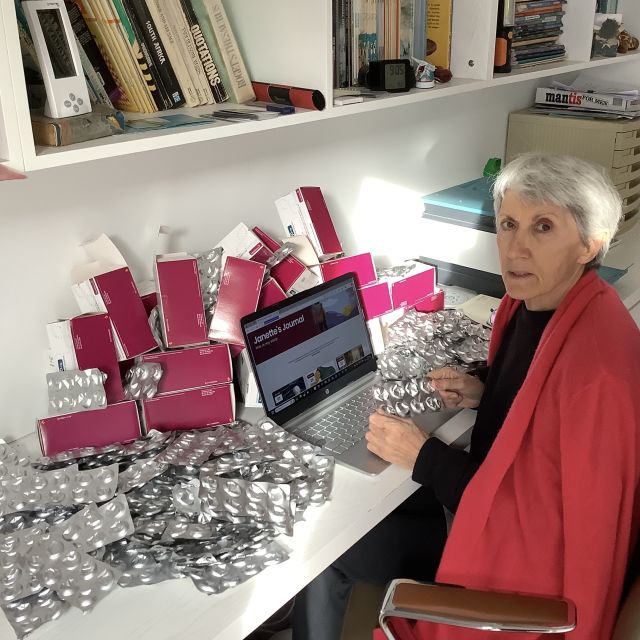Reflections on being a cancer sufferer
I began this blog after I was diagnosed with ovarian cancer. My original idea was to keep a diary, rather than set up a blog. To this end, I started writing every day in an effort to come to terms with my situation, and to process all the new information I was being given.
The diagnosis was devastating. I was in despair and, for a time, I felt a mixture of very intense emotions - fear, panic, sadness and anger. It was what I called my ‘What if…’ time. ‘What if I had been diagnosed sooner?’; ‘What if I became very sick, very quickly?’; ‘What if Rob couldn’t deal with the situation?’
Writing thus became a kind of safety valve, a way of getting out what I was thinking and feeling. When I felt fearful, I wrote for relief and when I felt panicked or sad, I wrote for respite. It was, I suppose, a form of meditation.
It was a friend who suggested I publish my ‘diary’ on the internet. “Your story is everyone’s cancer story,” he said. It was after this remark that I started posting my blog online.
I was amazed at the response and how many people started to follow me. A lot of people wrote to me: other cancer sufferers, family members of cancer sufferers and even those who just fretted about sickness and death. People told me how they identified with what I was writing, even if they couldn’t put their feelings into words. I was their voice. They didn’t feel alone. And, suddenly, neither did I.
Some people urged me to ‘be strong’, but you have to know that ‘strong’ is the last thing I feel. ‘Vulnerable’ is how I feel; vulnerable and sometimes terrified. Strong? Never. Of course, I fully understand that people who are not living with cancer in some way, don’t know what to say, but want to give support. Here are a couple of suggestions...
Instead of saying ‘be strong’, I think it’s better to say, ‘I hope you have a good day today.’ Cancer sufferers tend to live one day at a time. And when you learn that someone has cancer, rather than talking about a relative or friend who has had cancer and how they recovered (or died!), just say, ‘Oh, I’m sorry to hear that. I wish you the very best.’ Simply ask: ‘How are you today?’ Allow the person to speak. Just listen.
As a cancer sufferer I don’t want pity, but nor do I want to be invisible. I don’t need ‘cheering up’. What will be, will be and there’s nothing you or anyone else can do about it. As a cancer sufferer I have my ups and downs, just like anyone else.

